Tom Verlaine: Warm and Cool / Around / Songs and Other Things
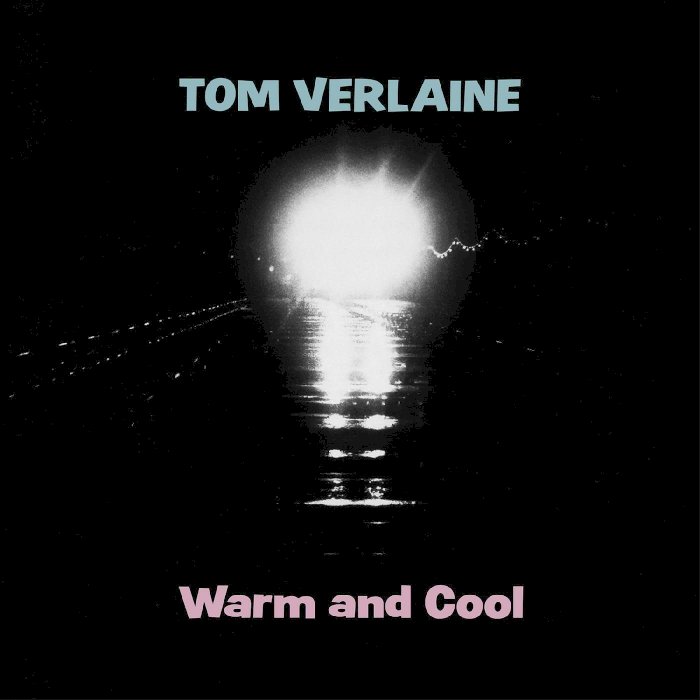
When Tom Verlaine died last year, the guitar legend had made far more albums as a solo artist than he had with his erstwhile band Television, but most obituaries treated his solo career as an afterthought. This is understandable. With 1977’s sublime Marquee Moon, Verlaine didn’t just carve out a new framework for a post-Hendrix American guitar god; his band also landed in the right place and time, personifying the aloof cool of the CBGB scene and becoming punk icons largely by association. The album’s songs and performances made it an enduring classic, but its mythology is part of what drew younger listeners in.
Verlaine’s mostly excellent solo albums carry no such mythology. They are works of an elusive individualist. After dissolving Television in 1978, the frontman was never again part of a legible scene—never caught in a zeitgeist, never anchored to a trend. His 1979 self-titled LP, which picked up where Television left off, was a critical hit and yielded a David Bowie cover of “Kingdom Come,” but Verlaine’s more outré work has long fallen between the cracks. Casual fans may be unaware of just how far the musician strayed from his signature sound on brilliant albums like 1982’s Words From the Front, which closes with a hypnotic nine-minute alien-pop groove, or 1984’s synth-colored Cover, which reintroduces Verlaine as an icy romantic crooner on gems like “O Foolish Heart.”
While those records remain sadly neglected, Real Gone Music is doing the Lord’s work by reissuing Verlaine’s last three albums on vinyl and making them available to stream for the first time. The reissue campaign covers the final chapter of Verlaine’s recording career, as his solo output became sporadic and live reunions with Television more frequent: a pair of instrumental albums, 1992’s Warm and Cool and 2006’s Around, and one last, shall we say, traditional album, Songs and Other Things, also from 2006. While not Verlaine’s most vital work, these releases help tie up loose ends in his discography and spotlight a jazzier mode of his six-string brilliance.
In particular, Warm and Cool, recorded primarily with bassist Patrick Derivaz and Television drummer Billy Ficca, could be classified more accurately as guitar jazz than rock. It’s a tapestry of mood pieces—some ambient and brooding (“The Deep Dark Clouds,” “Spiritual”), some playful and melodic (“Boulevard,” “Little Dance”). During its final stretch, Verlaine unleashes a pair of stormy improvisations—the five-minute “Ore” and nearly seven-minute “Lore”—which eschew the elegant melodicism of his Television solos in favor of scraping dissonance, reflecting the guitarist’s roots as a teenaged saxophonist who loved Coltrane. Those pieces have more in common with the free-jazz eruptions of Sonny Sharrock than with Verlaine’s punk peers.
In liner notes prepared for this reissue, Verlaine’s longtime partner, Jutta Koether, describes Warm and Cool in near-mystical terms, calling it “a turn towards the power of faith/s” and writing that Verlaine had been considering this “flight into the instrumental zone” for years. In retrospect, the album’s 1992 release feels like a warm-up for the more fleshed-out songs on Television’s reunion LP, released later that year. Warm and Cool feels more like incidental music without, well, accompanying incident. On the slow and steady “Those Harbor Lights,” Verlaine plays like he’s soundtracking a spaghetti Western in his head; on meandering cuts like “Saucer Crash” and “Depot (1951),” his solos are expressive as ever but lack the sense of drama or purpose they have when anchored to more traditional songwriting. The tracks simply start, amble along, and then end.
After 1992, Verlaine gradually receded from the public eye. Appearances were sparse. Disillusioned with the grinding routine of touring, he kept live commitments to a minimum. He contributed to Patti Smith’s 1996 comeback album, Gone Again, and lent some music to a little-seen Renée Zellweger film, Love and a .45. He also met Jeff Buckley, who hired him to produce what would have been Buckley’s second album, My Sweetheart the Drunk, though the singer became dissatisfied with the tracks and planned to re-record the material, sans Verlaine, before his untimely death.
Amid this doomed collaboration with Buckley, Verlaine entered the studio on his own to record Around. A second instrumental album, Around was tracked over two days in late 1996, according to Koether’s liner notes, then shelved. For reasons unexplained, it wouldn’t see release until a decade later.
A loose sister album to Warm and Cool—again recorded with the core trio of Derivaz and Ficca—Around finds Verlaine drifting deeper into the ambient-guitar wilderness. While Warm and Cool felt a bit scattershot, traversing from style to style, Around vibrates and hums like a mood piece from start to finish. Verlaine’s solos are the main attraction, but he has never played as delicately as he does here—tapping and fluttering around the higher reaches of his fretboard on “Mountain,” wailing out mournful melodies on “Candle,” and using a slide to achieve what sounds like a desert prayer on “The Suns Gliding!”
If Around has little to offer fans of Verlaine’s rock roots, that’s what makes it interesting. It’s a total departure from anything he had done before, with odd little excursions—the slinky Eastern funk of “Rain, Sidewalk,” the vaguely tropical pitter-patter of “Meteor Beach”—serving as testament to his musical curiosity. It’s no great exaggeration to say Verlaine was putting his own spin on spiritual jazz (indeed, Koether’s liner notes reference his fondness for an Albert Ayler box set).
But at 16 tracks, the album overstays its welcome and, at times, slips into aimlessness. There are plenty of pieces that would work great soundtracking some ’90s art-house neo-noir but remain less than engaging on record. “A Burned Letter,” for instance, may make you wonder why Verlaine never broke into Jim Jarmusch’s rolodex the way Neil Young did—Verlaine could have had a second career as a film composer. (He did, in fact, enjoy a regular side hustle creating new scores for European silent films from the 1920s.)
By the time this music finally hit stores, Verlaine had completed another Television reunion cycle and signed to Thrill Jockey, which released both Around and Songs and Other Things in the spring of 2006 after label founder Bettina Richards convinced him to record again. (“I liked recording, but I wasn’t much in the mood to do it until a couple years ago,” Verlaine told the New York Times.) An unexpected return after a 14-year drought of new material, this dual release would mark his final dispatch as a solo artist.
Songs and Other Things was the first and only album Verlaine recorded after a new generation of arty New York bands began borrowing from Television’s spindly aesthetic and reigniting interest in the downtown scene from which they emerged. Verlaine’s cultural stock had undoubtedly risen between 1996 and 2006. But unlike generational peers Bowie and David Byrne, Verlaine evinced little interest in collaborating with buzzy younger acts or pitching himself to a new generation of fans. He told the Times he heard little of his own influence in bands like the Strokes and said he spent his time listening to 12th-century nun Hildegard von Bingen instead.
Nor, from the sound of Songs and Other Things, was he interested in capitalizing on whatever CBGB nostalgia the Strokes had summoned forth. It’s an odd little album, twitchy and paranoid, with a loose specter of dark eroticism weaving through the material. Singing on record for the first time in 14 years, he delivers his vocals in a detached mumble. The effect is intriguing and often inscrutable, with Verlaine retreating from the relatively pop moves of 1990’s The Wonder (though, according to Koether, some of these song ideas dated back to that era). On “Heavenly Charm,” he drawls sly come-ons before the song erupts in an uncharacteristically distorted climax, then peters out before the three-minute mark. On “A Stroll,” he warps the record’s prettiest ballad with a strained, marble-mouthed delivery. It seems to be a love song, but Verlaine sings as though its sentiment is too private for public consumption.
At its best, Songs plays like a tapestry of grooves and cryptic mantras. “Nice Actress” is stormy and menacing, with Verlaine muttering, “Never said you was some fucked-up actor/But there is a hidden factor” over a depraved surf-rock lick. “Shingaling” is a slinky funk workout driven by drummer Jay Dee Daugherty’s relentlessly syncopated shuffle and Verlaine’s titular gibberish phrase. “All Weirded Out,” performed live as early as 1996, is a straight-ahead rocker in the spirit of 1981’s Dreamtime, while “The Day on You” is a droning vamp that becomes a vehicle for concurrent guitar solos, all fluttering filigrees and quivering whines, that multiply like Gremlins.
The album winds to a close with a loping, undercooked instrumental called “Peace Piece,” and then that’s a wrap on Tom Verlaine’s solo career. After 2006, he seemingly lost interest in making records. Throughout the 2010s, he continued performing live with Television, where unrecorded tracks like “Persia” routinely graced the setlist, but the band’s long-rumored fourth album never surfaced.
During his final years, Verlaine moved through New York like a ghost. He went unrecognized by the masses, but you could find him lurking outside the Strand for hours, smoking in an overcoat as he thumbed through volumes of Buddhist poetry or shot the breeze with Thurston Moore. He had zero interest in the celebrity that accompanied being a rock legend. He maintained a low profile, rarely made public appearances beyond Television’s sporadic tours and festival sets, never used social media, and stopped giving interviews (I tried).
He communicated, in other words, solely through his music. And on these three albums, his guitar had a lot to say, even as the man himself seemed to be receding into the shadows.
All products featured on Pitchfork are independently selected by our editors. However, when you buy something through our retail links, we may earn an affiliate commission.
Tom Verlaine: Warm and Cool
Tom Verlaine: Songs and Other Things


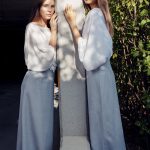

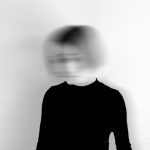

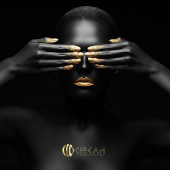
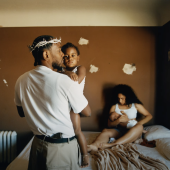
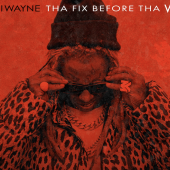
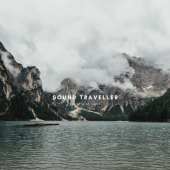
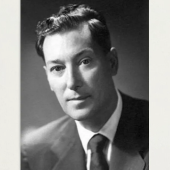


Comments
This post currently has no comments.